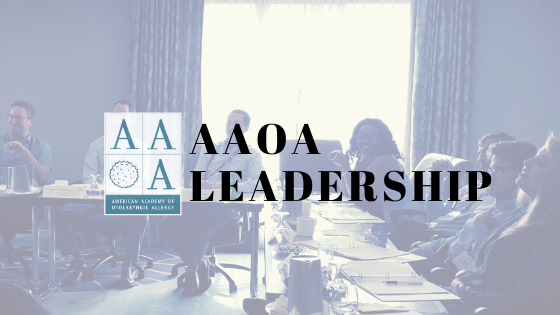The holiday specials fill you with hope and reflection. Even the Sound of Music (which I still do not understand the Christmas link) offers hope with Maria telling the children where one door closes a window opens — not to…
It Started with the 1998 AAOA Basic Course…
by Christopher Vickery, MD, FAAOA
In the late 90s, I was a fairly typical recent graduate from residency, headstrong in my sophomoric certainty that my “advanced” surgical skills would make for great outcomes for my patients and most certainly secure my fame and fortune. It did not take long for me to realize that despite adequate aeration of the paranasal sinuses, all complaints and pathology did not resolve.
My prior allergy experience consisted of a month (an entire 20 workdays) I had spent on an allergy rotation as a third year resident, mostly thankful for some free time to study for the inservice. But I was a stranger in a strange land; that world seemed far less fast paced and more nuanced than my familiar turf of Otolaryngology, but other than learning to refer a patient for allergy evaluation, I failed to see direct application. Had I missed something?
During my first year of private practice, one of my senior partners strongly suggested/required that I attend the Basic course for the AAOA in 1998. So off I went.
The setting and course were nice enough, but it was definitely an alien world. The immunology sounded familiar enough from medical school, but a Cyclical Food Allergy lecture left me completely bewildered. Nevertheless, I came away with a budding notion; maybe I need to be more cognisant of allergy’s role contributing to the pathology that was walking into my clinic.
I began to look for allergy patients and began testing and treating what I found. To my surprise, patients got better. They returned for their recheck after immunotherapy for 6 months and symptoms were legitimately improved, sometimes much more than my postoperative patients. With this reinforcement of outcomes, I continued to cultivate the allergy component of my practice.
Fast forward ten years. My allergy practice had grown considerably. I was still busy surgically, but the sinus patients were definitely experiencing better outcomes with more aggressive allergy treatments. My pediatric patients were doing better with more attention to the allergy side of their pathology. Even my LPR patients who also had allergies were less dependent on PPI therapy if their allergies were managed.
Despite this growing allergy practice, I had failed to make it to any more of the AAOA meetings. With a twinge of guilt about this volume of allergy, I decided it was time to further my education and pursue the AAOA fellowship pathway. I signed up to repeat the Basic course and steeled my resolve to follow through with the requirements. There were charismatic and entertaining lecturers at the podium presenting material that went beyond what I had learned previously in a fresh and engaging format. I was hooked.
I navigated the course requirements and successfully sat for the written and oral boards, which all proved considerably less painful than I had envisioned. Meanwhile my allergy practice continued to grow and my general and pediatric Otolaryngology patients had better outcomes and received better diagnosis and education because of my new training. Furthermore, through these courses, I had developed a network of colleagues who would return my calls and field questions when I was stumped.
Over the years, I have continued in my involvement with the AAOA; the benefits are myriad. Attending courses helps to maintain currency as well as fulfilling those pesky CME requirements. It also provides intellectual and personal stimulation through the network of colleagues whom I now look forward to seeing at meetings. In a broader sense, there is a huge personal and professional satisfaction in learning what some of the brightest minds in our field are doing and thinking. Finally, but hardly least, there are incalculable advocacy benefits. Never would busy practitioners have the time, resources, or skills to navigate regulatory quagmires like USP 797.





